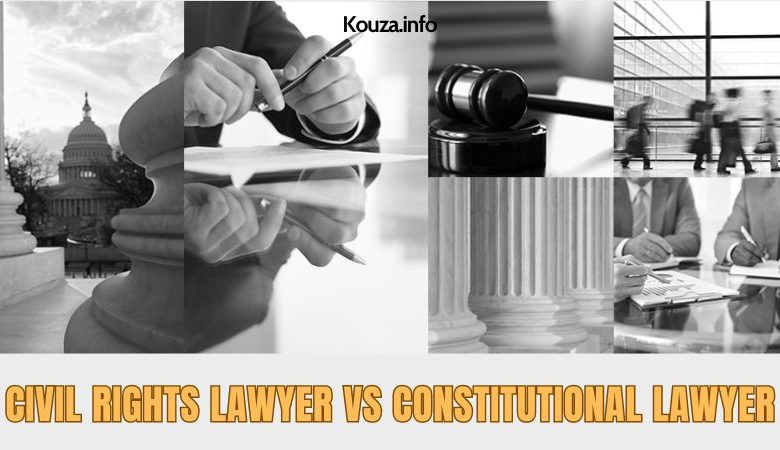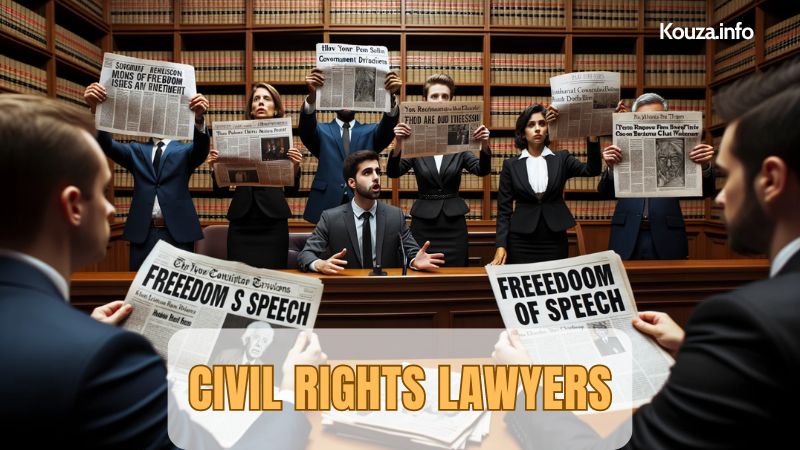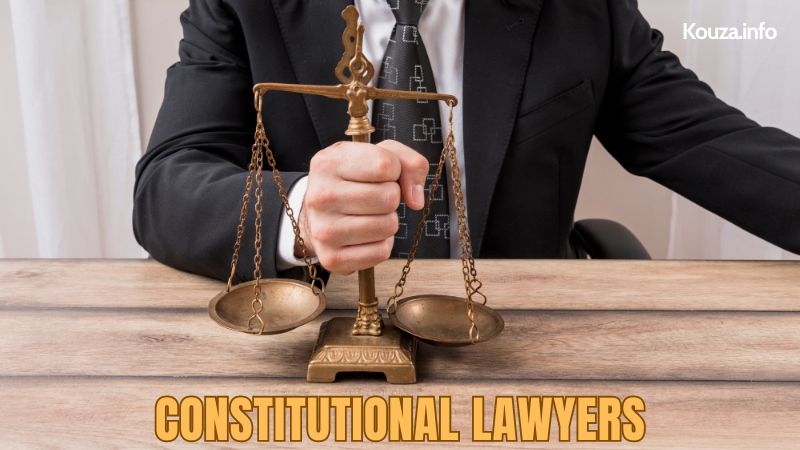Understanding the Distinction: Civil Rights Lawyer vs Constitutional Lawyer

In the legal landscape, two distinct yet interconnected professions stand as pillars of justice and guardians of individual liberties: civil rights lawyer vs constitutional lawyer. While their objectives may intertwine, each profession brings a unique set of skills and principles to the forefront. At Kouza.info, delving into the nuances of their roles is essential for grasping their contributions to upholding the fundamental tenets of fairness and equality in society.
Civil Rights Lawyers: Champions of Equality

Civil rights lawyers emerge as unwavering champions of equality, steadfastly committed to upholding the rights of individuals against systemic injustices and discriminatory practices. Their purview spans a diverse spectrum of societal and legal concerns, encompassing endeavors such as combating racial and gender discrimination, addressing instances of police misconduct, and safeguarding voting rights against infringement. At the heart of their practice lies an unyielding dedication to ensuring that every person receives equitable treatment and is accorded the full protection of their rights under the law, thus epitomizing the enduring pursuit of justice and equality within the legal landscape.
Constitutional Lawyers: Guardians of the Constitution

Constitutional lawyers, conversely, assume the role of guardians of the nation’s foundational document, the Constitution. Their expertise lies in deciphering and applying the principles enshrined within this venerable document, navigating the complexities of constitutional law to uphold the rights and freedoms it guarantees. Their purview extends to matters such as safeguarding freedom of speech, religion, and assembly, as well as maintaining the delicate balance of powers between the branches of government and delineating the limits of governmental authority.
Civil Rights Lawyer vs Constitutional Lawyer: Approaches to Legal Advocacy
The divergence between civil rights lawyer vs constitutional lawyer becomes particularly apparent in their respective approaches to legal advocacy. Civil rights lawyers often utilize constitutional law as a primary tool in advancing their clients’ interests, invoking principles of equal protection and due process to challenge discriminatory policies and practices. They may argue that certain laws or governmental actions infringe upon constitutional rights, thereby seeking redress for their clients through legal channels.

In contrast, constitutional lawyers engage in the intricate interpretation of constitutional provisions, delving into the historical context and intent behind each clause. Their arguments are deeply rooted in legal scholarship and precedent, as they navigate the intricate web of constitutional doctrines and judicial opinions. Whether advocating for the expansion of individual liberties or defending against governmental overreach, constitutional lawyers bring a wealth of legal expertise to their advocacy efforts.
Collaboration and Intersection
While civil rights lawyer vs constitutional lawyer may appear to operate within separate spheres, their professional paths frequently converge in cases that transcend these delineations. A civil rights lawsuit may pose fundamental inquiries into the breadth of constitutional safeguards, prompting the involvement of constitutional lawyers adept at navigating intricate questions of constitutional interpretation. Conversely, a constitutional dispute may reverberate across civil rights realms, compelling civil rights attorneys to advocate for individuals whose rights are imperiled by the outcomes of such legal contests. In these instances, collaboration between civil rights and constitutional lawyers becomes imperative, as they join forces to safeguard constitutional principles and advance the cause of justice for all.
Strategies in the Courtroom
In the courtroom, civil rights lawyer vs constitutional lawyer harness an expansive repertoire of legal strategies to champion the rights and interests of their clients. Civil rights lawyers deftly navigate witness testimony, expert analysis, and empirical evidence to elucidate patterns of discrimination or systemic bias, illuminating injustices that require redress. Furthermore, they may undertake grassroots advocacy and community mobilization efforts, rallying public support and leveraging collective pressure to effectuate transformative change within the legal landscape. Through their multifaceted approach, these dedicated legal practitioners serve as staunch advocates for social justice, striving to uphold the principles of equality, fairness, and constitutional rights for all.
In contrast, constitutional lawyers meticulously construct intricate legal arguments anchored in constitutional principles and jurisprudence, meticulously weaving together nuanced analyses to bolster their positions before the court. Beyond courtroom proceedings, they engage in multifaceted advocacy efforts, such as filing amicus briefs, drawing upon relevant case law and scholarly literature to strengthen their assertions and offer comprehensive insights to judicial deliberations. Moreover, their influence extends beyond litigation, as they actively engage in public discourse and scholarly pursuits, contributing to legal scholarship and shaping the broader narrative surrounding constitutional rights and freedoms, thus cementing their pivotal role in advancing constitutional jurisprudence and safeguarding democratic principles.
Conclusion: A Shared Commitment to Justice
In conclusion, the dichotomy between civil rights lawyer vs constitutional lawyer underscores the multifaceted nature of legal advocacy in contemporary society. While civil rights lawyers focus on combatting discrimination and injustices across various societal spheres, constitutional lawyers delve into the intricacies of constitutional law to safeguard the rights and freedoms guaranteed by the Constitution. Together, they form a formidable alliance for justice, championing the cause of equality and ensuring that the principles of justice and fairness prevail in society.
Conclusion: So above is the Understanding the Distinction: Civil Rights Lawyer vs Constitutional Lawyer article. Hopefully with this article you can help you in life, always follow and read our good articles on the website: kouza.info




